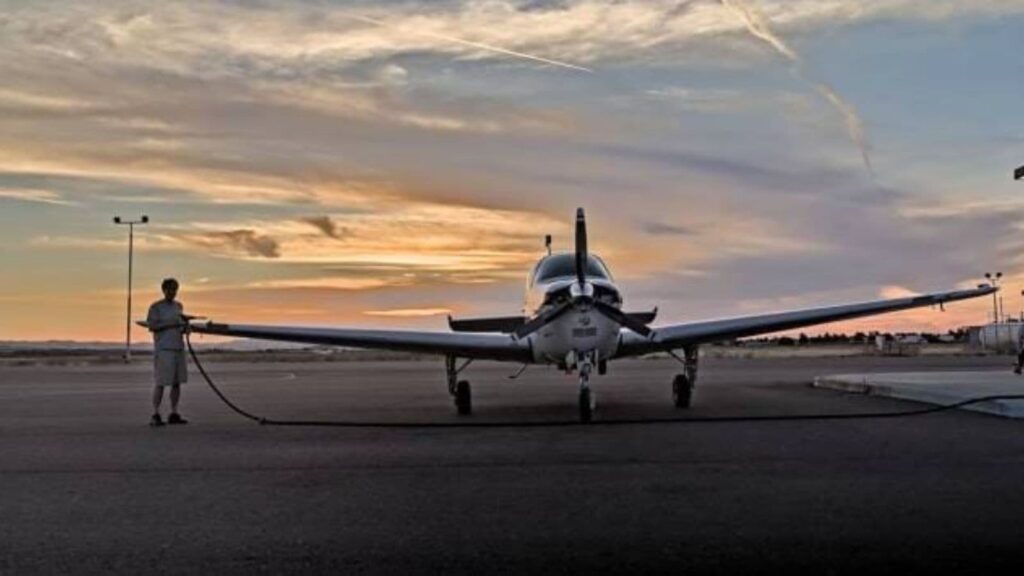970x125
The country’s largest refiner and fuel retailer Indian Oil Corporation (IOC) expects to start producing sustainable aviation fuel (SAF) on commercial scale at its Panipat refinery by December, following the recent international certification received by the unit for manufacturing the biofuel from used cooking oil, according to energy major’s chairman Arvinder Singh Sahney. By the end of this calendar year, IOC will have the capacity to produce 35,000 tonnes per year of SAF from used cooking oil, which will be sourced from large hotel chains, restaurants, and sweets and snacks majors like Haldiram’s, which normally discard cooking oil after single use.
970x125
“The capacity (35,000 tonnes per year) will be sufficient to meet the country’s 1 per cent SAF blending requirement (for international flights) by 2027…for feedstock (used cooking oil), we will be engaging aggregators to collect it from big hotel chains and restaurants. There is a large amount of such oil available in the country. The only challenge is collection. While it is easy to collect from large hotel chains, a solution needs to be found for collection from small users, including households,” Sahney said.
Earlier this week, IOC became the first company in India to receive the ISCC CORSIA certification for SAF production at its Panipat refinery in Haryana. ISCC CORSIA is a certification system for compliance with the Carbon Offsetting and Reduction Scheme for International Aviation (CORSIA) criteria for SAF. It is a prerequisite for commercial SAF production. According to IOC, the certification also sets a benchmark for other domestic refiners and industry players to scale up SAF production.
SAF is a biofuel that is produced from sustainable feedstocks and has chemistry similar to conventional aviation turbine fuel (ATF) or jet fuel, which is derived from crude oil. This means that existing aircraft engines can easily use the SAF-ATF blend. For instance, Airbus claims that all its aircraft are capable of flying on a maximum 50 per cent blend of SAF and conventional fuel. Various Indian airlines have already operated successfully a few test and demonstration flights using jet fuel doped with SAF in various proportions. According to aviation industry and energy experts, SAF alone is likely to account for over 60 per cent of the global aviation industry’s decarbonisation efforts.
According to Sahney, given that Europe already has SAF blending mandates, European airlines could be the first potential buyers of IOC’s SAF, which they can buy when they fly into India.
The refiner is also exploring export opportunities, given that SAF demand is expected to shoot up globally over the coming years.
The year 2027 will be an important one for adoption of SAF globally with the mandatory phase of CORSIA kicking in. CORSIA, which applies to international flights, would require airlines globally to offset any growth in carbon dioxide emissions beyond the 2020 levels. Using jet fuel blended with SAF is one of the ways through which carriers can keep their emissions under permissible levels.
Story continues below this ad
India, too, will have to comply with the mandatory phase starting 2027. In line with the CORSIA framework, India’s National Biofuel Coordination Committee (NBCC) has set the initial indicative targets for blending of SAF with jet fuel 2027 onwards, starting with international flights. The indicative targets are: 1 per cent blending in 2027 and 2 per cent in 2028. The government is expected to announce SAF blending mandates for domestic flights in India as well, but only after blending for international flights begins 2027 onwards.
The government has been working on a roadmap for introduction of SAF in domestic flights and there were indications earlier that some sort of a blending mandate or recommendation could take effect over the next couple of years. However, given the high cost of production of the biofuel and opposition from airlines over apprehensions of fuel cost escalation, the government is now looking at introducing any such mandate only from 2027 or beyond. According to industry insiders, SAF currently costs around three times the price of regular jet fuel.
While IOC has received the certification for the used cooking oil pathway for SAF production, the company is also working on setting up units based on the alcohol-to-jet pathway, which involves using ethanol as a feedstock to make SAF. A few other companies in India are also working to build units based on the various SAF manufacturing pathways. All such technologies and units need to be certified before they can start commercial operations.
© The Indian Express Pvt Ltd
970x125


